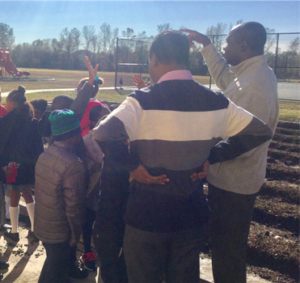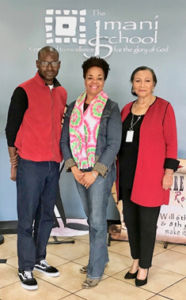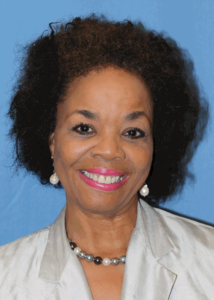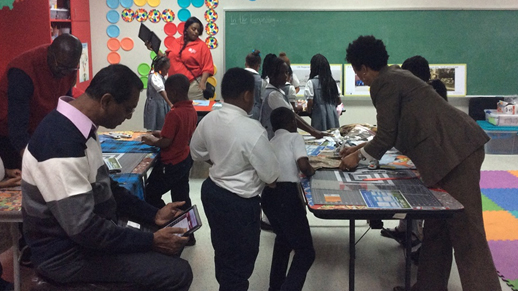June 4, 2018 – Studies have shown that fully immersing oneself in the learning process enhances one’s ability to retain knowledge. The hands-on demonstrations offered by 4-H activities often provide opportunities for youth to ponder their future careers. Life skills such as sewing and gardening may have been lost on newer generations, but the Cooperative Extension Program’s 4-H Youth Development unit is ensuring that subjects like these are in constant revival. Topics such as gardening even stimulate discussions about basic science such as the life cycle of plants, dietary choices, nutrients, and growing and harvesting food at home.

The Imani School, located in Harris County on South Post Oak Road in Houston, has had a flurry of programs to encourage youth and volunteers to enroll in their 4-H club. School administrators and teachers work together with 4-H specialists and county extension agents, and agricultural researchers from Prairie View A&M University to coordinate all programs so their students can be exposed to all 4-H has to offer. During the programs, 4-H members were introduced to the safety and proper use of a number of sewing tools such as the rotary cutter, self-healing mat, scissors, and the oversized vinyl ruler as they learned how to make no-sew fleece scarves. Research also indicates that sewing and crafting eases stress and increase happiness. While learning about the easy wash-and-wear and warm characteristics of fleece, all participating youths demonstrated cutting, designing, and creating unique and fashionable designs. They were enthusiastic about what they learned and eager to model their finished products.

In addition to the experiential lessons in sewing techniques, the agricultural research scientists discussed basic gardening, how to select a location for a garden, how to prepare the location before planting, how to select the variety of plants to grow, and how to care for the plants with proper tools and watering techniques. Establishing the school garden will begin immediately.
Since adopting the new lessons about gardening and crops into their learning outcomes, school administrators are talking with the extension professionals and scientists about turning acres of land into profitable 4-H projects. Focusing on students in grades 4-8, so far, forty-two children and seven staff have participated in the sessions about clothing and textiles, and gardening projects.
A special appreciation is extended to Patricia Hogan Williams, head of the Imani School, Melvin Meade, teacher and 4-H club manager, and the Cooperative Agricultural Research Center Plant Systems Scientists, Peter Ampim and Aruna Weerasooriya.
This work was supported by the USDA National Institute of Food and Agriculture 1890 Extension Formula/Evans-Allen 1890 Research Formula Program projects under Section 1444 and Section 1445.

Joice A. Jeffries, Ph.D.
4-H and Youth Development Program Specialist
jojeffries@pvamu.edu
(936) 261-5148

